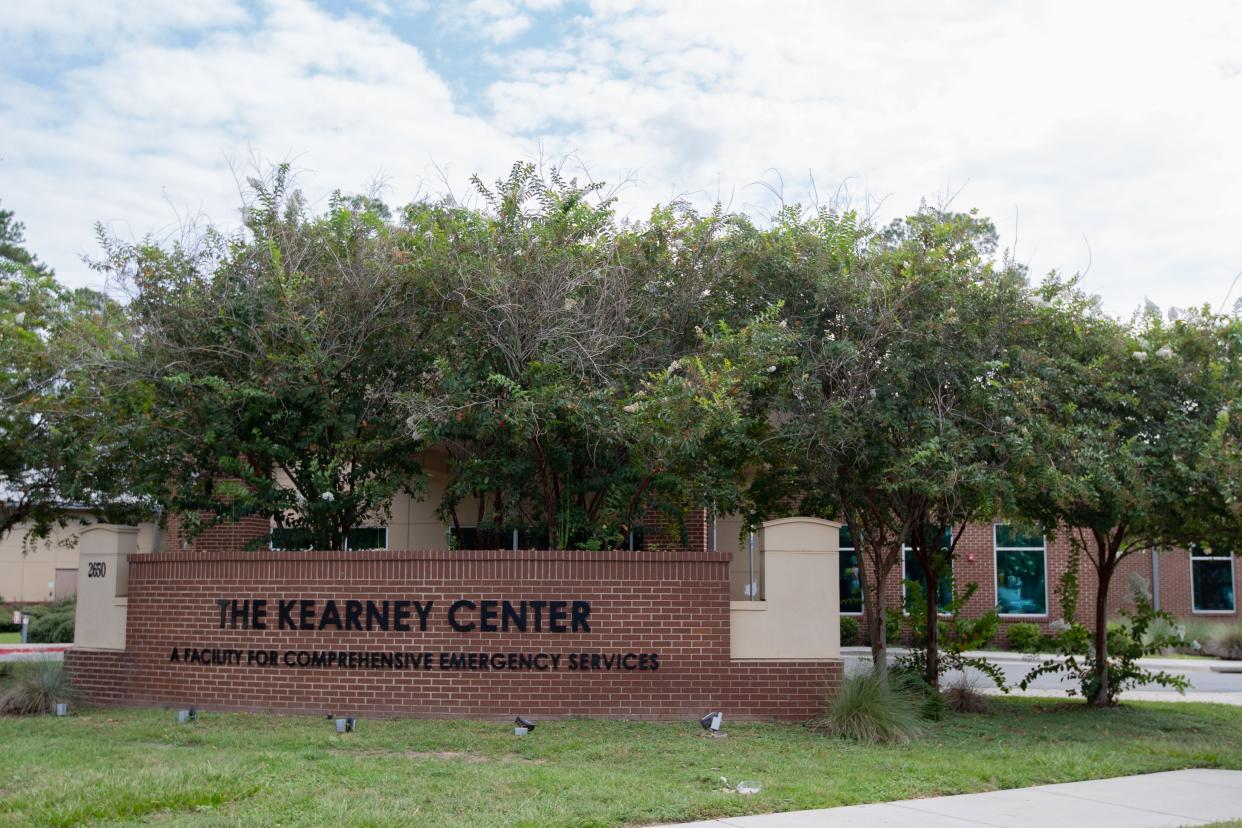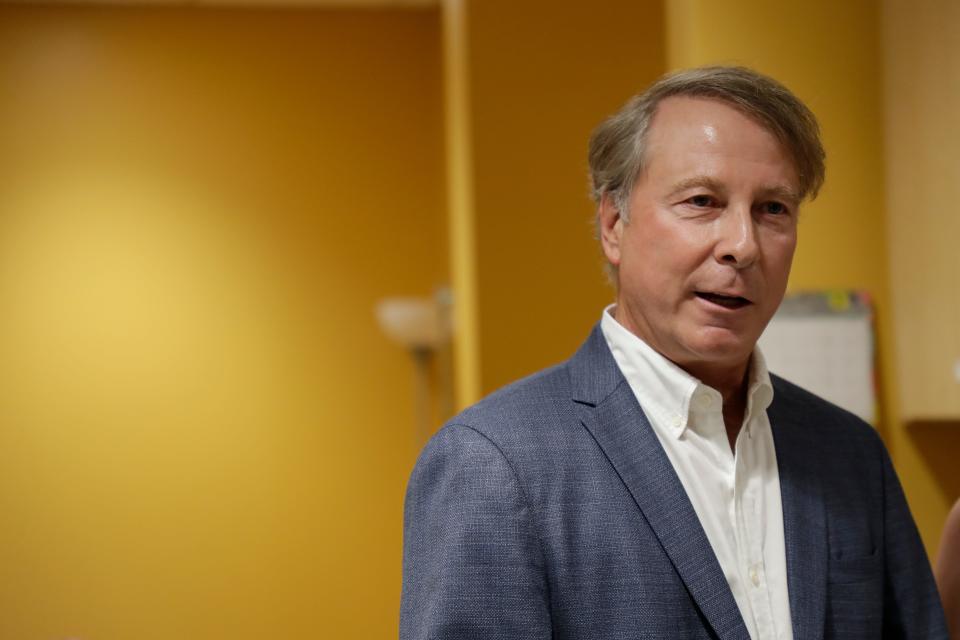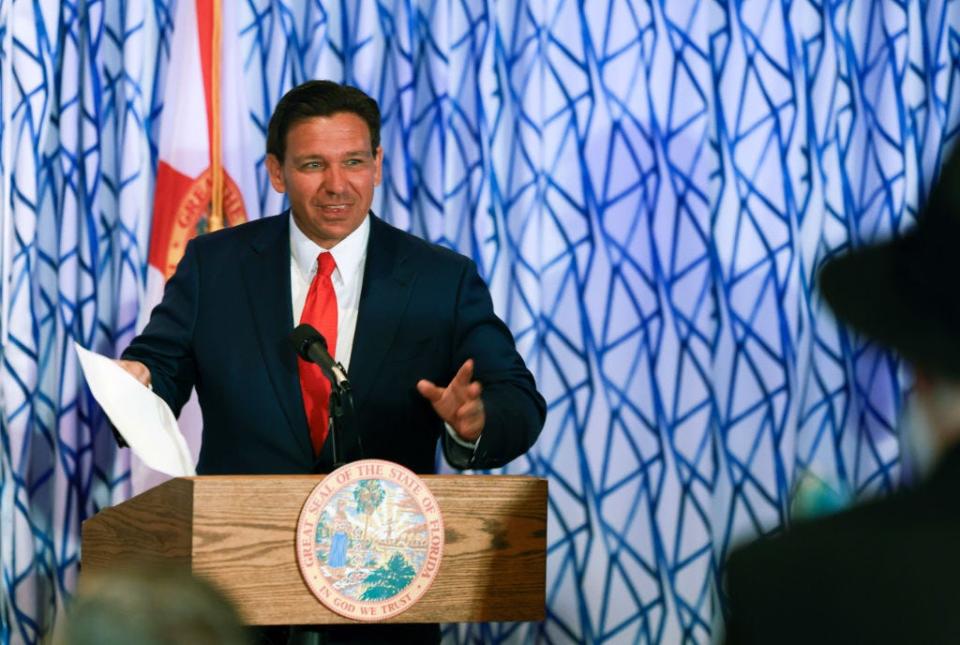Kearney Center begins charging out-of-state homeless people after influx

The Kearney Center is now charging $10 per night for clients coming in from out-of-state due to a sharp influx in recent months.
The facility's seven-member Board of Directors approved the policy that went into effect last week. Board President Rick Kearney, the tech entrepreneur who founded and built the Municipal Way shelter, said the non-profit's first reaction was to turn them away and send them back on the bus to where they came from, which he said is still an option if people decide not to stay at the shelter.
However, in an effort to be more humane, Kearney said the board opted for an alternative approach considering most of the people, including families, arrive exhausted from the hours-long bus ride and had little money.

"We have been getting people bused to us from the north and middle section of the United States with Greyhound bus tickets and directions to the Kearney Center," said Kearney.
Nearing capacity at the Kearney Center
Starting late last year, the Kearney Center documented an increase in clients originating from beyond Tallahassee that represents approximately 20% of new intakes.
Per the new policy, these new residents are being told they can stay for a few days if they're able to pay $10 per night. At that time, the Kearney Center staff will connect them with a case manager to determine what is the best outcome for them.
The number of clients served per day at the shelter is fluid. When temperatures drop below or near freezing, Kearney said capacity swells to around 400 men and women per night. The current average ranges below or above 300 clients.
"Three hundred to 350 is a pretty full house for us. When we get to 400+, then it's a little bit chaotic," Kearney said. "We try not to get over 400. But, if there was a natural disaster or, you know, a severe power outage, or something like that, we have generators and we could keep people for short term. That's what the fire marshal has afforded us."
He said the out-of-service intakes range from recently released inmates who received a bus ticket from cities like Philadelphia, for example, and others who don't speak English. Others were recently released from hospital care.
"So they literally come with the clothes on their back," Kearney said. "It's not like swarms of people. It's a couple at a time when they come down together ... We had an entire Hispanic family show up the other day with directions to the Kearney Center ... It just requires a lot of local resources to deal with things like that."
The new charging policy is being implemented on a trial basis, Kearney said. The idea is to get this population time to regroup, contact with relatives or someone who can take them in, obtain a valid ID, get clothes from Goodwill or, if possible, connect them with employment. But, Kearney said the center's resources weren't designed to handle the surge taking place.
"We are here to serve the local service area," Kearney said. "We are not here to serve the other 49 states."
New homeless law may further swell shelter population as Kearney wonders if buses from north may be politically-motivated
With homeless populations already rising, the shelter may end up serving even more clients once a new state law goes into effect Oct. 1.
Gov. Ron DeSantis has championed and signed the "Unauthorized Public Camping and Public Sleeping" bill that prohibits Florida cities and counties from allowing people to sleep in public places.
The bill (HB 1365) was a key focus during this year's legislative session. It bans homeless people from sleeping or setting up camp in public spaces. And if existing shelters reach capacity, it says cities must create designated encampments for those people, while providing minimal infrastructure such as running water and restrooms.
Local officials have indicated they shouldn't need to create a camp with existing shelters and services in place.
Kearney said the shelter has been discussing preparation plans but details on the new law's implementation and effects are still unknown.

"Nobody really knows," Kearney said of the law's impact. "I understand that the state will be providing additional dollars, probably through our Continuum of Care but even the COCs still don't know how and how much."
As for the reasoning for the current surge in out-of-state clients, Kearney said "we can speculate, but I don't know."
"Obviously, they could go to any city in Florida, but they're sending them to Tallahassee, where our governor lives, so that's my hunch,," Kearney said. "But, we'll let the facts speak for themselves."
While Kearney said he suspects political motivations may be at play, he said there's no definitive evidence supporting that. He also said the Governor's Office hasn't been formally informed of the situation, although he's spoken with some of his "colleagues who work closely with the governor. I have not heard back from them."
DeSantis sparked national headlines two years ago when he directed illegal immigrants be flown from Florida to Martha's Vineyard in Massachusetts in a grand display to spotlight undocumented people entering the country. Last year, while on his now dissolved presidential campaign, DeSantis arranged for the transportation of undocumented migrants from Texas to Sacramento, California.
The Governor's Office didn't not respond when contacted by the Tallahassee Democrat for comment.
Funding the Kearney Center
The Kearney Center utilizes a $4.5 million annual budget to provide a host of services, including meals, in-house medical care and case management. Its funding stems from federal, state and local government funds, along with donations.
At the local level, the 24-hour comprehensive shelter receives city and county funding through the Community Human Service Partnership (CHSP).
Leon County Assistant Administrator Shington Lamy said the Kearney Center received $370,000 last year from CHSP. He said county commissioners approved moving forward with the city, along with the Children's Services Council, to create line item funding for the Kearney Center and other organizations serving the homeless population.
"I can't say for sure, but we anticipate that we'll be able to provide increased dollars to other shelters to address the issue of reducing homelessness in our community with a primary goal of enhancing their operations and their case management," Lamy said.
Homeless shelters, he said, do not typically receive significant funding at the state or federal level compared to rapid rehousing programs.
"So that's why we made the recommendation that we move forward with establishing funding," Lamy said. "It would still go through CHS, but there will be a line item set up so they won't have to go through a competitive process."
The Kearney Center's new policy is more of a signal or means to deter out-of-state newcomers than a means to fill funding gaps.
Kearney said the $10 per day fee is "inconsequential" compared to the multi-million budget. However, he stressed the facility is not designed to serve people outside of Tallahassee on a long-term basis.
"It creates a burden on our local neighbors, our business neighbors, our residential neighbors ... police and the Sheriff's Department," Kearney said. "It's a heavy load that is added."
Contact Economic Development Reporter TaMaryn Waters at tlwaters@tallahassee.com and follow @TaMarynWaters on X.
This article originally appeared on Tallahassee Democrat: Kearney Center begins charging due to out-of-state homeless influx

